| Weight | 1 lbs |
|---|---|
| Dimensions | 9 × 5 × 2 in |
| host | mouse |
| isotype | IgG1 |
| clonality | monoclonal |
| concentration | 1 mg/mL |
| applications | ICC/IF, WB |
| reactivity | Measles Phosphoprotein |
| available sizes | 100 µg |
mouse anti-Measles Phosphoprotein monoclonal antibody (9H4) 3804
$520.00
Antibody summary
- Mouse monoclonal to Measles Phosphoprotein
- Suitable for: WB,ICC,ELISA
- Isotype: IgG1
- 100 µg
mouse anti-Measles Phosphoprotein monoclonal antibody (9H4) 3804
| antibody |
|---|
| Tested applications WB,ICC/IF,ELISA |
| Recommended dilutions ELISA: use at 0.1-1.0ug/ml Immunoblotting: User should use at 1-5ug/ml. A band of ~70kDa is detected Immunocytochemistry: use at 2- 10ug/ml on virus-infected cells. These are recommended concentrations. End user should determine optimal concentrations for the |
| Immunogen Recombinant Measles virus phosphoprotein. |
| Size and concentration 100µg and |
| Form lyophilized |
| Storage Instructions This product is stable for at least one (1) year at -20°C to -70°C. Reconstituted product should be stored in appropriate aliquots to avoid repeated freeze-thaw cycles. |
| Storage buffer Lyophilized, 0.1M Tris, 0.1M glycine, 2% sucrose |
| Purity protein affinity purification |
| Clonality monoclonal |
| Isotype IgG1 |
| Compatible secondaries goat anti-mouse IgG, H&L chain specific, peroxidase conjugated polyclonal antibody 5486 goat anti-mouse IgG, H&L chain specific, biotin conjugated, Conjugate polyclonal antibody 2685 goat anti-mouse IgG, H&L chain specific, FITC conjugated polyclonal antibody 7854 goat anti-mouse IgG, H&L chain specific, peroxidase conjugated polyclonal antibody, crossabsorbed 1706 goat anti-mouse IgG, H&L chain specific, biotin conjugated polyclonal antibody, crossabsorbed 1716 goat anti-mouse IgG, H&L chain specific, FITC conjugated polyclonal antibody, crossabsorbed 1721 |
| Isotype control Mouse monocolonal IgG1 - Isotype Control |
| target relevance |
|---|
| Protein names Phosphoprotein (Protein P) |
| Gene names P/V,P/V |
| Protein family Morbillivirus P protein family |
| Mass 54101Da |
| Function FUNCTION: Essential cofactor of the RNA polymerase L that plays a central role in the transcription and replication by forming the polymerase complex with RNA polymerase L and recruiting L to the genomic N-RNA template for RNA synthesis (By similarity). Also plays a central role in the encapsidation of nascent RNA chains by forming the encapsidation complex with the nucleocapsid protein N (N-P complex). Acts as a chaperone for newly synthesized free N protein, so-called N0, allowing encapsidation of nascent RNA chains during replication (By similarity). The nucleoprotein protein N prevents excessive phosphorylation of P, which leads to down-regulation of viral transcription/ replication. Participates, together with N, in the formation of viral factories (viroplasms), which are large inclusions in the host cytoplasm where replication takes place (By similarity). {ECO:0000250|UniProtKB:P06162, ECO:0000250|UniProtKB:Q77M42}. |
| Structure SUBUNIT: Homotetramer (By similarity). Interacts (via multimerization domain and XD domain) with polymerase L; this interaction forms the polymerase L-P complex (By similarity). Interacts (via N-terminus) with N0 (via Ncore); this interaction allows P to chaperon N0 to avoid N polymerization and non-specific RNA binding before encapsidation (By similarity). Interacts (via C-terminus) with N-RNA template (via Ntail); this interaction maintains the P/L complex anchored to the nucleocapsid template during the sequential transcription (By similarity). Interacts (via C-terminus) with protein C this interaction allows C to associate with the ribonucleocapsid (By similarity). {ECO:0000250|UniProtKB:Q77M42, ECO:0000250|UniProtKB:Q83623, ECO:0000250|UniProtKB:Q9WMB4}. |
| Post-translational modification PTM: Phosphorylation on serines by host CK2 is necessary for the formation of viral factories. {ECO:0000250|UniProtKB:Q77M42}. |
| Domain DOMAIN: The N-terminus consists of a long intrinsically disordered tail. The central part contains the coiled-coil multimerization domain (MD) (By similarity). Forms a four-stranded coiled coil structure (By similarity). The C-terminus constitutes the alpha-helical domain (XD) that binds to the nucleocapsid (N-RNA complex) (By similarity). {ECO:0000250|UniProtKB:P04859, ECO:0000250|UniProtKB:P06162, ECO:0000250|UniProtKB:Q77M42, ECO:0000250|UniProtKB:Q83623}. |
| Target Relevance information above includes information from UniProt accession: P35974 |
| The UniProt Consortium |
Data
| No results found |
Publications
| pmid | title | authors | citation |
|---|---|---|---|
| We haven't added any publications to our database yet. | |||
Protocols
| relevant to this product |
|---|
| Western blot IHC ICC |
Documents
| # | SDS | Certificate | |
|---|---|---|---|
| Please enter your product and batch number here to retrieve product datasheet, SDS, and QC information. | |||
Only logged in customers who have purchased this product may leave a review.
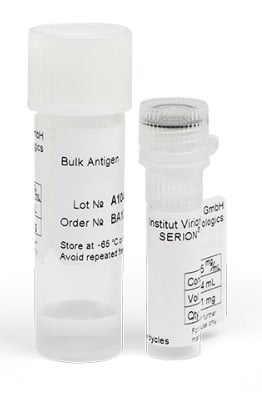
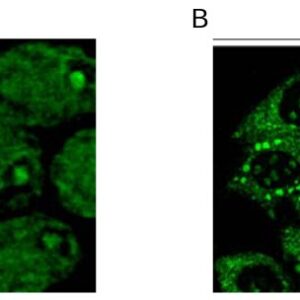
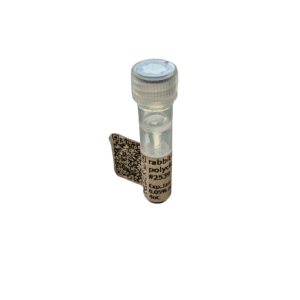
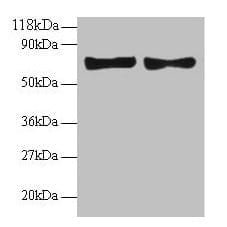
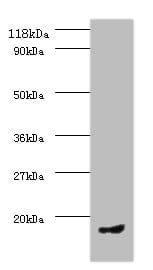

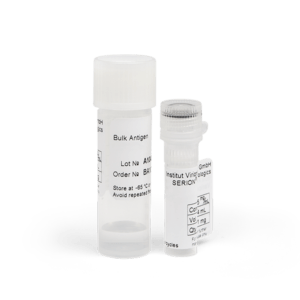
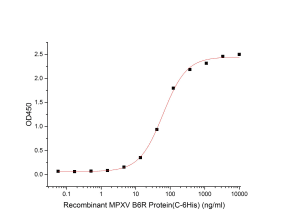
Reviews
There are no reviews yet.